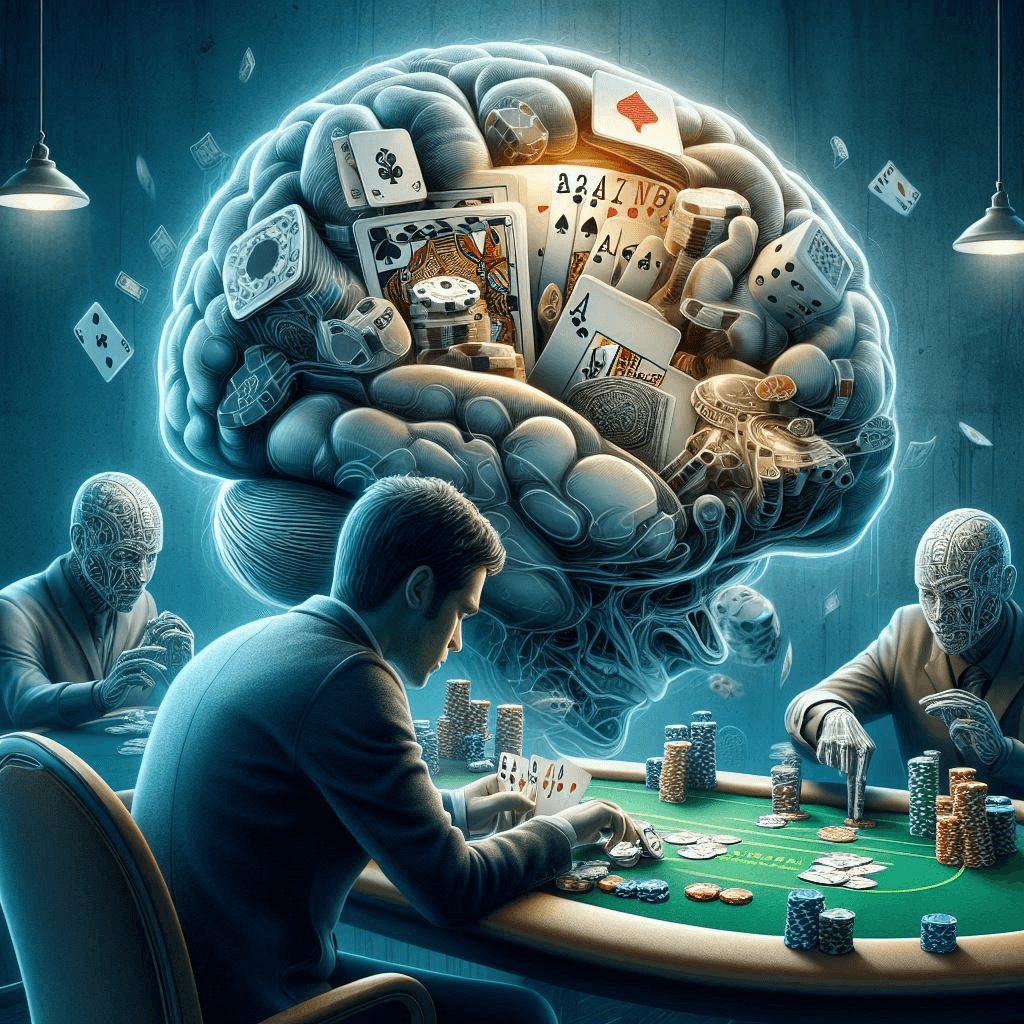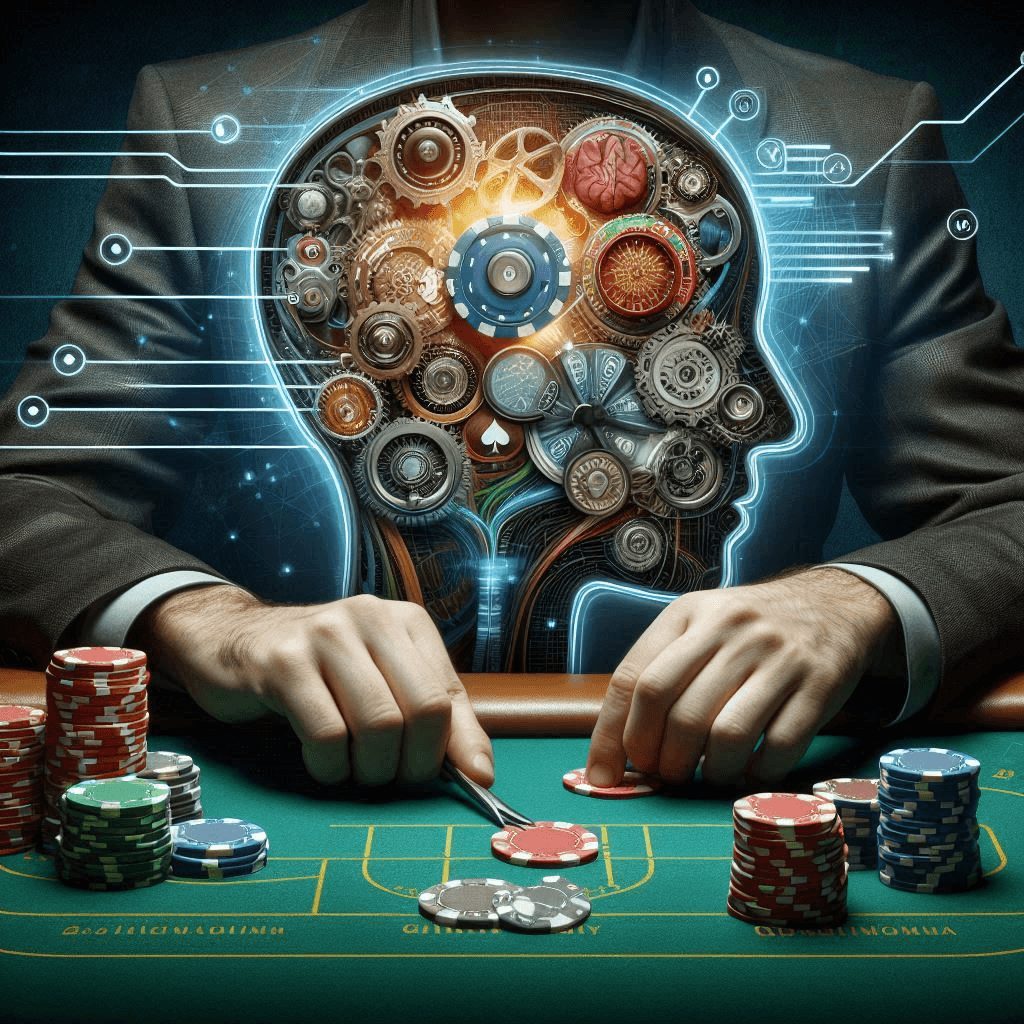In the dynamic world of casino gaming, Stud Behavioral Insights has emerged as a captivating variant that challenges players’ strategic skills and decision-making processes. Beyond the allure of potential payouts, this game has become a fascinating arena for the exploration of player psychology and behavioral patterns. This article delves into the revolutionary insights gleaned from studying the psychological aspects of Caribbean Stud Poker, offering a unique perspective on how players navigate the complexities of this thrilling casino game.
Stud Behavioral Insights is a casino table game that combines the classic elements of poker with the excitement of high-stakes gambling. Unlike traditional poker, where players compete against one another, Caribbean Stud Poker pits the player against the dealer, creating a dynamic that often leads to intriguing psychological considerations.
Through extensive research and observation, experts in the field of gaming psychology have uncovered a wealth of insights into the decision-making processes and behavioral patterns of Caribbean Stud Poker players. These findings have not only enhanced our understanding of the game itself but have also provided valuable implications for the broader realm of casino gaming and player engagement.
The Allure of Stud Behavioral Insights
Stud Behavioral Insights has garnered significant attention in the casino industry due to its unique blend of skill, chance, and the potential for substantial payouts. The game’s structure, which involves a face-off between the player and the dealer, has captivated players with its sense of suspense and the opportunity to outsmart the house.
The Thrill of the Gamble
One of the primary allures of Stud Behavioral Insights is the thrill of the gamble. Players are drawn to the prospect of making high-stakes decisions that can lead to significant financial rewards. This sense of risk-taking and the possibility of a life-changing payout create a powerful emotional experience that can be both exhilarating and addictive.
The Illusion of Control
Stud Behavioral Insights also presents players with the illusion of control, as they make strategic decisions based on the cards they hold and their assessment of the dealer’s hand. This perception of control, coupled with the game’s inherent unpredictability, can lead players to feel a sense of empowerment and the belief that they can influence the outcome through their decisions.
The Social Aspect
The casino environment that houses Caribbean Stud Poker tables also plays a crucial role in the game’s appeal. The social interaction, the camaraderie among fellow players, and the energy of the gaming floor can enhance the overall experience and contribute to the game’s allure.
Behavioral Insights in Caribbean Stud Poker
Researchers in the field of gaming psychology have delved deep into the psychological factors that govern player behavior in Stud Behavioral Insights. By studying the decision-making processes, emotional responses, and cognitive biases exhibited by players, these experts have uncovered a wealth of insights that shed light on the complexities of this captivating game.
Risk-Taking Tendencies
One of the most prominent behavioral patterns observed in Stud Behavioral Insights, players is their propensity for risk-taking. The game’s high-stakes nature and the potential for substantial payouts can lead players to make decisions that may not align with optimal strategic play. This risk-seeking behavior is often driven by the desire for the thrill of the gamble and the pursuit of outsized rewards.
Overconfidence Bias
Closely related to the risk-taking tendency is the overconfidence bias, where players tend to overestimate their abilities and the likelihood of favorable outcomes. This cognitive bias can lead players to make impulsive decisions, disregarding the actual probabilities and potential consequences of their actions.
Illusion of Control
The perception of control is another significant factor that influences player behavior in Stud Behavioral Insights. Players may believe that their decisions and strategic choices can meaningfully impact the game’s outcome, despite the inherent randomness and house edge. This illusion of control can prompt players to make suboptimal decisions in the pursuit of perceived control.
Emotional Responses
The emotional aspect of Stud Behavioral Insights cannot be overlooked, as players’ feelings and intuitions can heavily influence their gameplay. Researchers have identified various emotional responses that can shape player behavior, including:


Excitement and Anticipation
The anticipation of a potential payout and the thrill of the game can elicit strong feelings of excitement and adrenaline among players. This emotional state can lead to impulsive decision-making and a heightened willingness to take risks.
Fear and Anxiety
Conversely, the fear of losing and the anxiety of facing potential losses can also impact player behavior. Some players may become overly cautious, leading to conservative decision-making that may not align with optimal strategy.
Frustration and Disappointment
Experiencing consecutive losses or unfavorable outcomes can trigger feelings of frustration and disappointment in players. These emotional responses can lead to a shift in risk tolerance, with players potentially becoming more reckless in an attempt to recoup their losses.
Cognitive Biases
In addition to emotional factors, cognitive biases also play a significant role in shaping player behavior in Stud Behavioral Insights. These biases, which are inherent to human decision-making, can lead players to make suboptimal choices and deviate from the mathematically optimal strategy.
Gambler’s Fallacy
The gambler’s fallacy is a cognitive bias where players believe that past losses or unfavorable outcomes increase the likelihood of future wins. This fallacy can prompt players to continue betting despite the game’s inherent randomness and the lack of any causal relationship between past and future outcomes.
Loss Aversion
Loss aversion is a cognitive bias where players tend to place a higher value on avoiding losses than on achieving gains of the same magnitude. This bias can lead players to make risk-averse decisions, even when the mathematically optimal strategy suggests taking on more risk.
Confirmation Bias
Confirmation bias is the tendency for players to seek out and interpret information in a way that confirms their existing beliefs and preconceptions. This bias can lead players to selectively pay attention to information that supports their preferred strategy or decision-making approach, while disregarding contradictory evidence.
Implications for Player Engagement and Game Design
The insights gleaned from the study of player psychology in Stud Behavioral Insights have profound implications for the casino industry’s approach to player engagement and game design.
Enhancing Player Experience
By understanding the psychological factors that drive player behavior, Stud Behavioral Insights operators can develop more engaging and responsive gaming environments. This knowledge can inform the design of game mechanics, user interfaces, and overall player experiences to better cater to the cognitive and emotional needs of Caribbean Stud Poker enthusiasts.
Personalized Incentives
Stud Behavioral Insights can leverage the insights into player psychology to offer personalized incentives and bonuses that align with individual player preferences and behavioral patterns. This targeted approach can foster a stronger sense of player engagement and loyalty.
Responsible Gambling Measures
Recognizing the potential for cognitive biases and emotional responses to lead to problematic gambling behavior, casinos can implement responsible gambling measures that empower players to make more informed decisions. This may include providing educational resources, tools for self-monitoring, and interventions to help players maintain a healthy relationship with the game.
Innovating Game Design
The Stud Behavioral Insights derived from Caribbean Stud Poker can also inform the design and development of new casino games. By incorporating a deeper understanding of player psychology, game designers can create more immersive and strategically challenging experiences that captivate players while mitigating the risks associated with cognitive biases and emotional decision-making.
Adaptive Game Mechanics
Stud Behavioral Insights, Game designers can explore the integration of adaptive game mechanics that dynamically adjust to player behavior, providing personalized challenges and rewards. This approach can help players maintain an optimal level of engagement and minimize the potential for destructive gaming patterns.
Balanced Risk-Reward Structures
By carefully balancing the risk-reward structures in new casino games, designers can create an environment that appeals to the thrill-seeking nature of players while also encouraging responsible decision-making. This balance can foster a more sustainable and enjoyable gaming experience for players.
Conclusion
The study of player psychology in Stud Behavioral Insights has yielded revolutionary insights that have the potential to transform the casino gaming industry. By understanding the cognitive, emotional, and behavioral factors that influence player decision-making, casino operators and game designers can create more engaging, responsive, and responsible gaming experiences.
As the industry continues to evolve, the integration of these psychological insights will be instrumental in fostering a casino gaming landscape that not only captivates players but also promotes responsible and sustainable gambling practices. By embracing these revolutionary findings, the casino industry can elevate the player experience and cultivate a more informed and empowered gaming community.
FAQs
-
What are the primary psychological factors that drive player behavior in Caribbean Stud Poker?
The key psychological factors that influence player behavior in Caribbean Stud Poker include risk-taking tendencies, overconfidence bias, the illusion of control, emotional responses (excitement, fear, frustration), and cognitive biases such as the gambler’s fallacy, loss aversion, and confirmation bias.
-
How can casino operators leverage the insights into player psychology to enhance the player experience?
Casino operators can leverage the insights into player psychology to enhance the player experience by offering personalized incentives and bonuses, implementing responsible gambling measures, and informing the design of new casino games with adaptive game mechanics and balanced risk-reward structures.
-
What are the potential implications of the overconfidence bias on player decision-making in Caribbean Stud Poker?
The overconfidence bias can lead players to overestimate their abilities and the likelihood of favorable outcomes, prompting them to make impulsive and suboptimal decisions that may not align with the mathematically optimal strategy for the game.
-
How can the integration of psychological insights into game design benefit both players and casino operators?
The integration of psychological insights into game design can benefit both players and casino operators by creating more engaging and responsive gaming experiences, fostering responsible gambling practices, and cultivating a sustainable and informed gaming community.
-
What role do emotional responses play in shaping player behavior in Caribbean Stud Poker?
Emotional responses, such as excitement, fear, and frustration, can heavily influence player behavior in Caribbean Stud Poker. These emotional states can lead to impulsive decision-making, risk-averse behavior, and reckless betting patterns that may deviate from optimal strategic play.
